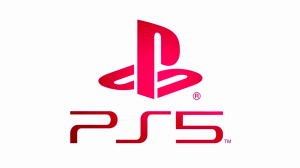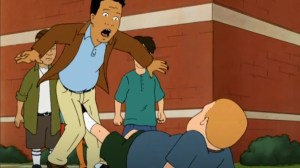
It is reiterated again and again throughout The Hunger Games: Mockingjay Part Two what a terrible burden Katniss Everdeen must carry. It is unfair that she must endure so much trauma, but it is her incredible force of will that ultimately creates the good outcomes of the story. That narrative can easily be grafted onto Jennifer Lawrence’s role in this film as well. She is forced to shoulder an enormous weight, the success of an entire franchise, because the direction, script, and set creation are not doing this movie any favors. Lawrence’s performance is the most significant quality in a movie that, for the most part, does its best to crash and burn.
Videos by ComicBook.com
Lawrence is very good in Mockingjay Part Two though, good enough that many of the obvious flaws in the film could be overlooked. As the movie enters its overlong denouement, Lawrence cries by herself. She not only cries, but ugly cries complete with wrinkled chin and dripping spit. It is the best moment in the entire film. Despite so much of what led to this moment failing to build any emotional connection with the audience, Lawrence’s visceral portrayal of grief is enough to make your eyes well and stomach sink.
She is helped by a script that only treats her and primary love interest Peeta, played by Josh Hutcherson, as fully formed characters. Lawrence and Hutcherson get all of the best material in the movie, and use it well. Their extended off-screen friendship helps bring a real sense of chemistry to a romance that never quite worked in the source material. There is a maturity to how they treat and regard one another. When together they act as if in an adult marriage, more focused on the partnership qualities of a relationship than the passion. It works well and they are very endearing together.
This is not to say that the rest of the cast is useless. Despite almost every other role in Mockingjay Part Two being largely thankless, almost every actor and actress goes above and beyond to provide some sense of life to what can best be described as sketches of characters. There may be no better example of this than Natalie Dormer and Elden Henson as Cressida and Pollux. The only dialogue they are provided is designed to move the plot along, and they ought to barely be distinguishable from the rest of Katniss’ rather large raiding party. Yet every moment they have in front of the camera is infused with emotion and internal life. There’s no reason these characters ought to feel like people, except for the very talented actors portraying them. Mahershala Ali as Boggs, Jena Malone as Johanna Mason, the late Philip Seymour Hoffman as Plutarch, and so many others all do the same, providing far more than this script or director Francis Lawrence appear to be asking of themselves.
Many of Mockingjay Part Two‘s flaws can be traced back to the script. Whereas Part One was willing to take what worked from the book and then rearrange and add elements to make the best possible film, Part Two is slavishly devoted to its source material. This is problematic from the start, considering Mockingjay is far and away the weakest of Suzanne Collins’ series often reading like youthful fan fiction. The plot is composed of contrivance after contrivance, striving to place Katniss and a few other characters at very specific events. It is a book and now a movie driven by plot, pasting scenes together rather than building actual connections.
There are still elements within that story filled with potential though. Collins’ love of insane, child murdering traps, post apocalyptic settings, and melodrama are all still intact. Yet Lawrence does his best to squander these remaining potential strengths. The raid of the Capitol is loaded with set pieces that should be some of the most memorable of the year. But either Lawrence or his second set crew manages to make these sequences almost unwatchable. The traps being sprung are bigger than any in the series, but it is often unclear what exactly is happening or who is being affected. Lawrence utilizes both shaky cam and a very fast editing to create so much confusion that it becomes impossible to care about what is supposed to be occurring on screen. When one of the most endearing actors in the film dies, it’s almost impossible to discern why that is. His injury is only shown once in the briefest of cuts and the remaining shots show him looking completely healthy from the waist up.
One sequence in particular stands out as an atrocity. Set in the sewers with monsters that look like something from Guillermo del Toro’s nightmares, it has an incredible amount of potential. What happens in the scene should be horrifying, both on a visceral and emotional level. Once the sequence begins it is never clear who is where or what dangers they might be facing. Two characters appear to be dead until they suddenly reappear, yet there is no clear sense of dramatic flow, they simply are or are not. The conclusion of this scene ought to be gut wrenching, yet its presentation borders on being laughable. There may be no greater example of squandered potential in an action sequence this year than these five minutes of cinema.
These failures are not only found in directing, but the very world occupied by Katniss and her allies. They spend the majority of the film in a bombed out, evacuated city filled with traps and refugees. Yet the city looks remarkably clean and the only time other people appear are when it is convenient for the sake of plot. Rather than being transported away, audiences are likely to feel they have simply seen a movie set with just enough decoration to make it appear that a war might have occurred.
What is saddest about these decisions is that they undermine the film’s intended message. Mockingjay Part Two is clearly supposed to be an anti-war film, showing the terrible costs of war for both sides and how the innocent and noble will always suffer the most. Yet everything about the movie is so sterile that war never truly feels terrible. The violence is shockingly clean, the setting is extraordinarily well kept, and the dead barely feel human. Mockingjay Part Two may want you to oppose war, but it never actually manages to show off a single reason to do so (with the exception of Jennifer Lawrence ugly crying).
Over the course of three movies, The Hunger Games have gradually improved upon their source material, yet in its final installment the series comes full circle. Mockingjay Part Two may not remove the ideas and power packed into Catching Fire and Part One, but it fails to fulfill the promises they made. The conclusion of The Hunger Games may end the story, but only Lawrence and her fellow cast mates manage to provide any reason to care about how it happens.
Grade: C-









